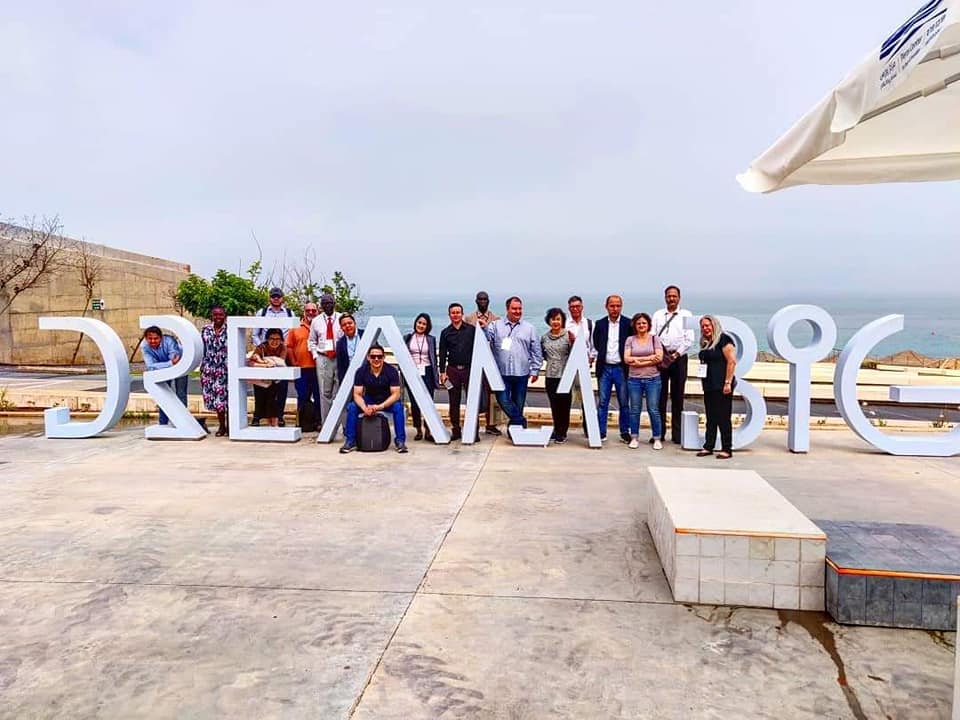
The seminar aimed to inspire the participants in such a way that, upon completion, they will be enabled to choose the methods and tools suitable for planning future activities in their respective countries, towards:
An implementation and development of Innovation and Entrepreneurship in the educational system. To support the integration and the implementation of 21st-century education skills and to provide a base for future training activities in the Education for Innovation and Entrepreneurship training according to the needs of the different countries and institutions.

"There is no doubt that creativity is the most important human resource of all. Without creativity, there would be no progress, and we would be forever repeating the same patterns." Edward de Bono
How entrepreneurship anchored in the field of education? How may the learning processes be understood and handled according to an entrepreneurial approach? Can innovation and entrepreneurship be taught?
It is an age-old debate! The answer is both yes and no. Education plays an essential role in shaping attitudes, skills, and culture – from the primary level up. Entrepreneurship in education provides a mix of creativity, experiential learning, skill-building and most importantly, a shift in mindset. Certainly, the earlier and more widespread exposure to innovation and entrepreneurship, the more likely students will consider entrepreneurial and innovative ideas at some point in the future.
The implementation of the entrepreneurial skills fosters independent and qualified students, encourages them to identify opportunities, discover their abilities and goals. Thus, the aim in primary and secondary schools is that students develop competencies such as creativity, initiative, inventiveness, responsibility, perseveration and personal qualities within all the standards and performance indicators to apply the 21st-century skills that are necessary to become the change-makers that are transforming our world nowadays.

The focus is on developing cross-curricular approaches and making it easier to coordinate the various educational.
ü Open learning - in which the students determine learning outcomes.
ü Active learning - different situations in which students choose the areas of implementation for their projects.
ü Learning experiences beyond the classroom by different information sources (resources, experts) and materials from society and the natural environment.
ü A learning atmosphere – which promotes and fosters collaboration and teamwork, encourages new ideas and creativity, tolerance for trial and error and tolerance of failures.
ü Thinking strategies - identification of significant questions, and problem-solving skills that clarify various points of view and lead to better solutions.
Another main point to consider is the position of the educators as role models through a dynamic process to identify opportunities for innovation, it is essential to build up the educators' skills to act upon these aspects by transforming ideas into practical and targeted activities, whether in a social, cultural or economic context. Teachers should get tools as competence development, practical experience and research within ongoing training on innovative and entrepreneurial teaching and learning methods.
As one of the practical levels of innovation and entrepreneurship in education, the school becomes a place for experimenting, a place to develop and participate in project-based learning environments, a place where entrepreneurship is part of the organizational and educational culture and where the teacher and the director are entrepreneurs themselves.
Above all, this seminar aligned with the Sustainable Development Goals. In a time of change and uncertainty, Innovation and Entrepreneurship in Education are crucial subjects to take into account if countries want to provide Quality Education (Goal 4). Moreover, the transformations in Education inspired by these two subjects will provide the students Decent Work and, in a broader view, promote Economic Growth (Goal 8). An educational system that contemplates these factors will guaranty a "…resilient infrastructure, promoting inclusive and sustainable industrialization and foster innovation" (Goal 9 Industry, Innovation and Infrastructure).
Partners